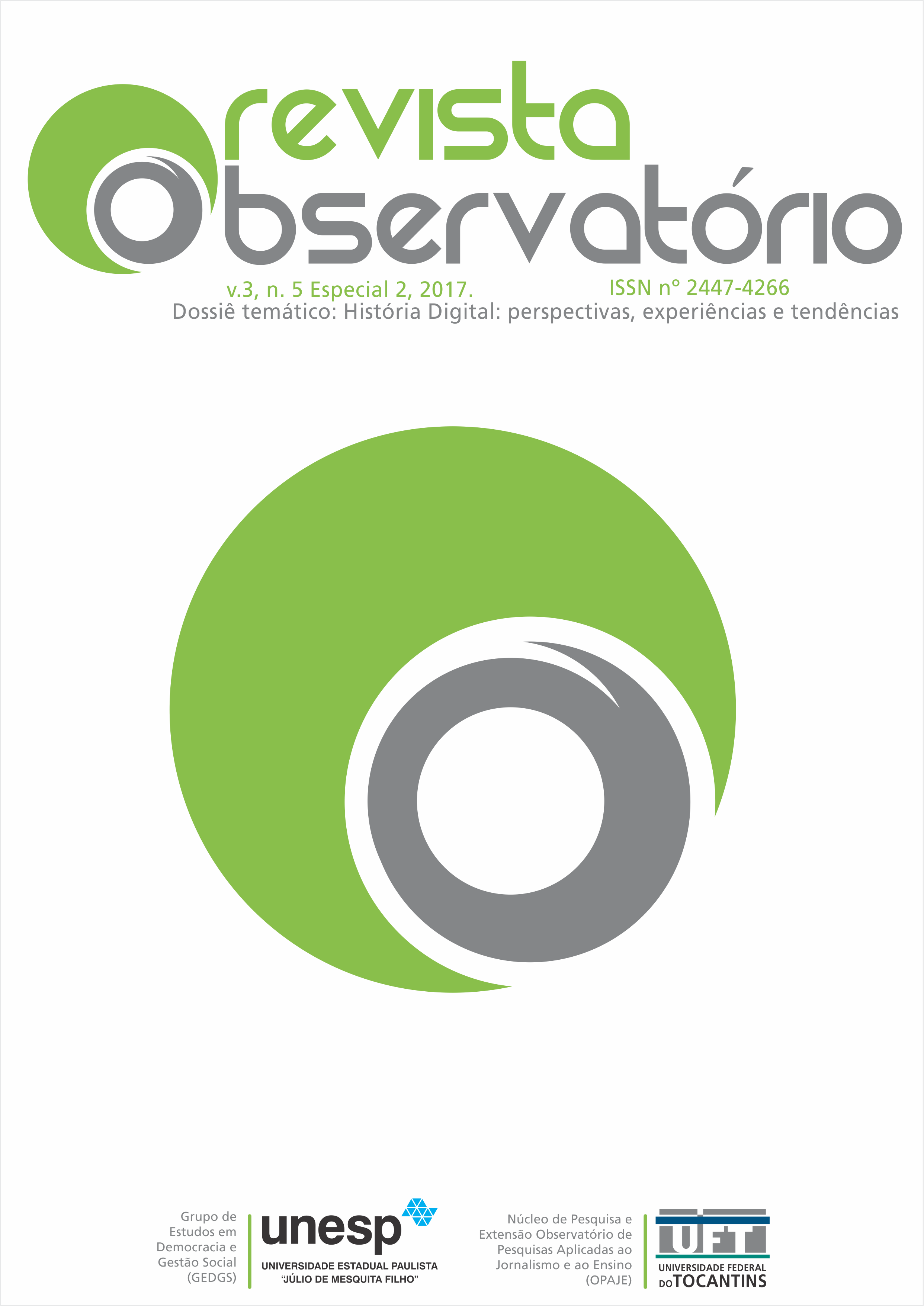O PODER DA PREFEITURA, RELAÇÕES ÍNTIMAS E O VOTO RETROSPECTIVO: Uma análise da dinâmica eleitoral municipal através do método qualitativo
DOI :
https://doi.org/10.20873/uft.2447-4266.2017v3n5p472Mots-clés :
Eleitor, Método qualitativo, Voto retrospectivoRésumé
Esse artigo mostra as visões de mundo dos eleitores para com o processo eleitoral de dois municípios de Pernambuco através do método qualitativo. A técnica focus groups (grupos focais) foi utilizada para a coleta de dados e posterior construção da interpretação dos contextos sociais abordados. Inicialmente, narramos as visões de mundo dos eleitores. Nesta narrativa evidenciamos o que os eleitores pensam sobre economia local, problemas da cidade e como ocorre a disputa eleitoral. Em seguida, os dados contidos na narrativa sofrem interpretação. Dela surgem conceitos que clarificam a dinâmica eleitoral dos municípios pesquisados. O poder da prefeitura na disputa eleitoral, a relação íntima entre indivíduo e político e a limitação explicativa do voto retrospectivo para a compreensão da escolha do eleitor são as principais conclusões deste artigo.
Téléchargements
Références
ALMEIDA, Alberto Carlos. A cabeça do eleitor: estratégia de campanha, pesquisa e vitória eleitoral. Rio de Janeiro: Record, 2008.
ACHEN, Christopher H; BARTELS, Larry M. Democracy for realists – Why elections do not produce responsive government. New Jersey: Princeton University Press, 2016.
BARBOSA, Lívia. O jeitinho brasileiro: a arte de ser mais igual que os outros. Rio de Janeiro: Campus, 1992.
BOUDON, Raymond (Dir.). Tratado de sociologia. Tradução de Teresa Curvelo. Rio de Janeiro: J. Zahar, 1995.
DAHL, Robert. Análise política moderna. Tradução de Sérgio Bath. Brasília: UNB, 1981.
FIORINA, Morris. Retrospective voting in American national elections. New Haven; London: Yale University, 1981.
FLICK, Uwe. Introdução à pesquisa qualitativa. Tradução Joice Elias Costa. 3. ed. Porto Alegre: Artmed, 2009. P. 93 – 369.
GONDIM, Sônia Maria Guedes. Revista Paidéia, Ribeirão Preto, v. 12, n. 24, p. 149-161, jan./abri. 2002.
GUSMÃO, Luís de. O fetichismo do conceito – Limites do conhecimento teórico na investigação social. Rio de Janeiro: Topbooks, 2012.
KEIL, Ivete Manetzeder. Grupo Focal: Algumas notas sobre questões práticas. Revista Debates, Porto Alegre, v. 9, n. 1, p. 49-59, jan./abri. 2015.
KING, Gary, KEOHANE, Robert, VERBA, Sidney. 1994. Designing Social Inquiry: Scientific Inference in Qualitative Research. New Jersey. Princeton University Press.
KUSCHNIR, Karina. Antropologia da política. Rio de Janeiro: Zahar, 2003.
______. O cotidiano da política. Rio de Janeiro: Zahar, 2000.
LAVAREDA, Antonio, TELLES, Helcimara (org). A lógica das eleições municipais. Rio de janeiro: FGV, 2016.
______, Antonio, TELLES; Helcimara (org). Como o eleitor escolhe seu prefeito – Campanha e voto nas eleições municipais. Rio de Janeiro: FGV, 2011.
MEAD, Margaret; BENEDICT, Ruth; SAPIR, Edward. Cultura e personalidade. Organização Celso Castro. Tradução Maria Luiza X. de A. Borges. Rio de Janeiro: Zahar, 2015.
OLIVEIRA, Adriano. (org.). Eleições não são para principiantes: interpretando eventos eleitorais no Brasil. Curitiba, PR: Juruá, 2014.
OLSON, Marcun. A lógica da ação coletiva: os benefícios públicos e uma teoria dos grupos sociais. São Paulo: Edusp, 1999.
SOUZA, Jessé. Os batalhadores brasileiros – Nova classe media ou nova classe trabalhadora? Belo Horizonte: Editora UFMG, 2010.
VEIGA, Luciana; GONDIM, Sônia Maria Guedes. A Utilização de Métodos Qualitativos na Ciência Política e no Marketing Político. Opinião Pública, Campinas, Vol. VII, nº1, pp. 1-15, 2001.
VILELA, Jorge Mattar. Política e eleições no sertão de Pernambuco – O povo em armas. Campinas: Pontes Editores, 2008.
Téléchargements
Publié-e
Comment citer
Numéro
Rubrique
Licence
[PT] Autores que publicam nesta revista concordam com os seguintes termos:
1. Autores mantém os direitos autorais e concedem à revista, sem pagamento, o direito de primeira publicação, com o trabalho simultaneamente licenciado sob a Creative Commons Attribution License (CC BY-NC 4.0), permitindo o compartilhamento do trabalho com reconhecimento da autoria do trabalho e publicação inicial nesta revista.
Leia todos os termos dos direitos autorais aqui.

